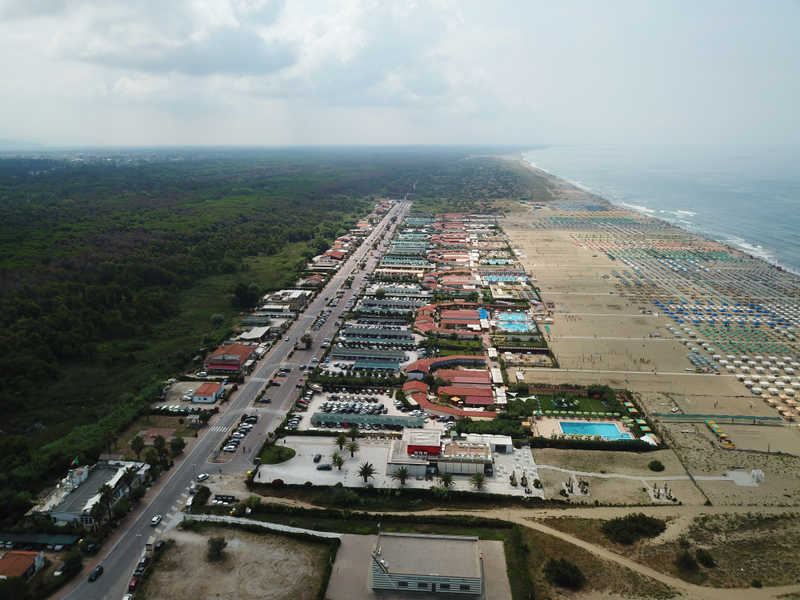WHAT IS FORCE MAJEURE AND HOW DOES IT APPLY TO INDIAN REAL ESTATE?
Currently, 214 countries and regions around the world and 2 international conveyances are going through a global crisis due to Kovid-19. On March 11, 2020, it was officially declared an epidemic by the World Health Organization (WHO). This epidemic has not only killed people but has also impacted trade, commerce, and global economies.
The COVID-19 epidemic has resulted in a nationwide lockdown and restricted movement across the country. Subsequently, businesses across the country have been badly affected, and so have operations, and therefore, contracts and obligations under the agreement are being returned to estimate these effects.
The situation created by the coronaviruses outbreak as a result of nationwide lockdown orders by the Government of India (GoI). Many industries have raised many questions about contractual rights and obligations during the crisis. One such contract provision that is particularly notable: the Force Majeure Clause.
In the wake of the COVID-19 epidemic, the Forgotten Force Majeure Clause has now come under close examination, particularly in relation to real estate contracts. Contractual parties have begun to consider the need to modify their existing contracts.
On 13 May 2020, real estate developers across the country offered some relief as Finance Minister Nirmala Sitharaman announced a coronavirus incentive package of Rs 20 lakh crore for the nation. It allowed developers to implement “force majeure” as a legal term for delays in project delivery. A very commendable step when the entire country has been closed in total so as to counter the impact of the COVID-19 pandemic and construction work is going on intermittently.
Consumers across the country are being assured that this “Force Majeure“clause will not affect their past compensation claims and future delays of the project. For not meeting the deadline set at the time of project registration with state real estate regulatory authorities, the builder will have to pay 10% of the entire project cost as a penalty.
Granting relief by extending the deadline to complete projects of up to 6 months in the wake of a coronavirus outbreak, the government will direct real estate regulatory authorities to consider the entire duration of the coronavirus virus epidemic on the strength. Relief will be extended for all registered projects ending on or after March 25 under the Real Estate (Regulation and Development) Act, RERA, from the day the national lockdown to regulate coronavirus came into force.
The Ministry of Housing and Urban Affairs has issued an advisory to the States / UTs and their regulatory authorities to “consider COVID-19 as a Force Majeure incident under RERA”, stating that the registration of regulatory Can meet deadlines and date 9-March 25 to December 24, 2020, for all registered projects on or after March 25 without individual applications.
WHAT IS FORCE MAJEURE CLAUSE?
Force majeure clauses are contractual clauses that change individuals; obligations or liabilities under a contract when an unusual event or circumstance beyond their control limits one or all of the parties from fulfilling those commitments.
In most cases these allow for extensions of dates for escrow or compensation due to ‘unforeseen circumstances’ and if the unforeseen circumstances point to the dates being missed there is an exit clause that lets either party pull out from the contract.
CONCEPT OF FORCE MAJEURE
“Force Majeure”, a French word similar to “vise Majeure” in Latin, means “superior force”. The term “Force Majeure” is defined in Black’s Law Dictionary as ‘an event or effect that can neither be anticipated nor controlled.’ The term includes both acts of nature (such as floods, cyclones, tsunamis, and hurricanes) and actions of people (such as riots, strikes, and wars).
LANGUAGE OF THE FORCE MAJEURE CLAUSES IN THE CONTRACT
A company may insert a force majeure clause into a contract to remove itself from the liability of the event which cannot satisfy the terms of the contract (or if it attempts to do so will result in loss of goods) for reasons beyond its control.
The purpose of the Force Majeure clause is to exempt a party from a contract that has become impossible to perform due to the intervention of a superior force. The current state of the concept of force majeure has gained importance. And by and large, the judicial response to the doctrine of force has been harsh.
Force Majeure is a clause in a contract that basically releases both parties from liabilities or obligations when an unforeseen event or situation occurs, such as a war, strike, riot, crime, pandemic, cyclone, tsunami, flood, pandemic or an event described by the legal term Act of God, prohibits one or both parties from fulfilling their obligations under the contract. In practice, the majority of the force majeure clause does not excuse the party’s non-performance entirely, but only suspends it for the duration of the force majeure.
FORCE MAJEURE IN INDIAN LAW
Force Majeure is often combined with the doctrine of frustration of contract. But these are completely different concepts.
The concept of force majeure clause is neither defined under Indian statutes nor specifically dealt with. However, legislators have to deal with this concept to some extent as section 32 of the Indian Contract Act, 1872 makes it clear that contingent contracts have to be dealt with. Section 32 of the Indian Contract Act, 1872 is as follows:
“32. Enforcement of contracts occurring on an event – that which constitutes a contract to do or not to do anything when an uncertain future event occurs, cannot be enforced by law unless and unless The event has not happened. If the event becomes impossible, then such contracts are done. Zero. “
From a contractual point of view, a force majeure clause provides temporary reimbursement to a party by performing their obligations under a contract on the occurrence of a force majeure. The important components of a force majeure clause are as follows :
- An unexpected/unforeseen interference event occurred;
- The parties to the agreement agreed that such an incident would not occur;
- Such an incident has made the performance of obligations under the contract impossible or impractical;
- The parties have taken all such measures to fulfill the obligations under the agreement or at least minimize the loss; and
- The affected party claiming relief under the pressure of force will have the burden of proof that a large incident of force has affected the performance of such a party of the contract.
To achieve the force’s potential, it is of the utmost importance that performance should be purposefully impossible, just hard or informal performance is not enough. Under Indian contract law, the Supreme Court expressly stated in Energy Watchdog v. Central Electricity Regulatory Commission that only those events, which are expressly included in the contract, can exclude a party from the performance. Meaning, a loud clap would be strongly interpreted at all times.
SECTION 56 OF THE INDIAN CONTRACT ACT, 1872 IS AS FOLLOWS:
Agreement to perform impossible acts. Contract after an act becomes impossible or unlawful. – A contract to perform a contract, which is made after the contract, becomes impossible, or, due to an event that the provider could not stop, becomes void due to unlawful, act becomes impossible or unlawful is. Compensation for loss through non-performance of the impossible or unlawful known act – Where a person has promised to do something that he knew, or, who knew with due diligence, and who did not know the promise, to be impossible or unlawful, any harm to such promiser Must compensate for such a promise for subsistence through non-performance of the promise.
SECTION 56 DEALS WITH TWO DIFFERENT LEVELS
- It renders void all agreements to do impossible acts, and
- It envisages a situation wherein a lawful act has subsequently become impossible or unlawful to perform.
- It cancels all agreements to perform impossible acts, and
- It envisages a situation in which the legal act subsequently becomes impossible or illegal.
IMPORTANT COMPONENTS OF SECTION 56 OF THE INDIAN CONTRACT ACT
- Must be a valid contract;
- The contract is yet to be performed or is underway; And
- The aforesaid performance becomes impossible through facts or law.
It is not possible to keep an exhaustive list of situations in which the doctrine of excuses is to be applied to excuse performance. Yet some grounds for the frustration that are well established are as follows:
- Destruction of subject matter;
- Death or incapacity for personal service;
- Non-existence or non-occurrence of a particular state of things;
- Interference by legislative or executive authority;
- The intervention of War; And
- Change of circumstances of a particular situation.
On analyzing the contents if section 32 and section 56 of the Indian Contract Act, 1872, it is pertinent to note that where the contract, as a matter of construction, contains or expressly contains a term according to which it is rejected on it Will happen. In certain circumstances, the question of the dissolution of a contract is determined according to its tenure and not under Section 32 and Section 56 of the Indian Contract Act, 1872. Under English law, they are all treated as cases of desperation, but under Indian law, such cases fall under Section 32, which deals with contingency contracts.
ABSENCE OF A FORCE MAJEURE CLAUSE IN A CONTRACT
Where there is a lack of the provision of force majeure clause within a contract, there is a possibility to invoke, through section 56 of the Indian Contract Act, the doctrine of ‘supervision impossible’. The provision clearly states that if it becomes impossible to enter into a contract to perform work, it will be unlawful due to some unavoidable circumstances, which the proprietor cannot stop, and subsequently, the entire contract becomes void is.
Since the Act does not define the term ‘frustration of contract’, only little relief is available to the parties, which is possible by proving the ‘absolute’ impossibility of contractual performance.
DISTINCTION BETWEEN FORCE MAJEURE AND DOCTRINE OF FRUSTRATION
A Force Majeure clauses may include acts of government, war, acts of God, or any other event or circumstance, as may be included by the parties in a contract prior to its execution. For a party to gain the ability of force, it must fulfill the conditions specified in the Majeure Clause of the Force. The contract is not terminated, but the performance of the contract is suspended during the time when the incident that created the supervising force exists. After the large event of such force ceases to exist, the party who reaps the benefit of this force has to perform part of the contract. In case of failure of a party, which has to perform its share of the contract post as a large event of such force, the other party will have the right to terminate the contract. The force majeure is a contractual remedy and the terms and conditions for forming a force clause are set by the parties prior to the execution of the contract.
The desperation of a contract is the act of an act taking place outside the contract (after the execution of the contract) and such an act makes the performance of the contract impossible. The frustration of the contract is a statutory remedy. Section 56 of the Indian Contract Act clarifies the principle of the frustration of the contract. The line below it is “impossible”. Section 56 is to be interpreted in practical terms and not in the literal sense. If there is no absolute incapacity, the contract will still fall under section 56, but the contract is fundamentally changed, which the parties did not consider at the time of the agreement.
Whether the situation of Covid-19 and subsequent lockdown will be covered under Section 32 or Section 56 of the Indian Contract Act, 1872 will depend on the fact whether the contract has force majeure clauses or not.
CORONAVIRUS PANDEMIC: A SUPERSEDE IMPOSSIBILITY OR ONLY CALAMITY?
In order to examine whether the degree of the ongoing epidemic would fit as impossible, it is necessary to confirm the criterion set by the apex court in this regard.
According to the legal expert, both are covered by extraordinary circumstances as well as natural disasters on the strength of power, and the parties are included in the freedom agreement by making their contractual obligations, for things beyond their control is.
WOULD CORONAVIRUS OUTBREAK AND SUBSEQUENT NATIONWIDE LOCKDOWNS BY CENTRAL & STATE GOVT BE SUFFICIENT TO PETITION FORCE MAJEURE CLAUSE IN THE CONTRACT?
Applying the force majeure clause to the contract will depend on the following factors:
- Establish a causal relationship between the large occurrence of force and hindrance in contract performance;
- Harmonized construction with all provisions; And
- Complying with the condition precedents contained in the force majeure clause
HOW HAS COVID-19 IMPACTED FORCE MAJEURE CLAUSES?
During the COVID-19 pandemic, homebuyers have tended toward either their contracts for relief in enforcing certain performance obligations, many of which are either specifically pandemic or government restrictions in locating the provision of their force. Is not mentioned or simply does not exist.
Prior to the COVID-19 epidemic, both builders and buyers may find it easier to use generalized terms, such as “events outside the reasonable control of a party,” or “acts of God,” because they felt this language. Enough to achieve the unimaginable.
IS COVID-19 A FORCE MAJEURE EVENT?
Force majeure clauses will usually choose one of the following methods or strategies to defining the type of event which may depend on its impact, help a party from contractual commitments. It includes some specific events such as terrorism, war, earthquakes, hurricanes, epidemic, acts of governments, etc. Where the term epidemic or pandemic has been used, that will clearly covered Coronavirus (COVID-19).
Unlike other countries such as Germany and France where the term is mentioned in civil laws, the 148-years old Indian Contract Act, which restricts the situations in which insures in a contract shall be legally required is quiet on the term `force majeure’.
Though the Act allows a builder-buyer agreement for making an ‘impossible’ act to be considered unreasonable, the court settlement of disputes has varied from case to case, depending on the facts of each.
These amendments would allow buyers to suspend or even break a deal without penalty as the country goes on lockdown and economic crisis.
And, even if the term ‘force majeure’ is mentioned in a contract between two parties, `epidemics’ or `pandemics’ are rarely if ever, included in the definition of ‘force majeure’ which typically covers disasters like an earthquake, flood, and war.
The current outbreak of the novel Coronavirus has created destruction globally. Coronavirus (COVID-19) has come as a blow for the already struggling Indian real estate industry. It has not only thrilled the human health but also the country’s economic health. This pandemic has heavily impacted the seamless functions of builders, buyers, and other concerned parties of the real estate industry.
WHAT WILL FORCE MAJEURE CLAUSE GENERALLY BE OBLIGED TO INCLUDE AND WHAT IF, A CONTRACT DOES NOT INCLUDE A FORCE MAJEURE CLAUSE?
A force majeure clause in a contract would typically include an exhaustive list of events such as acts of God, war, terrorism, earthquakes, hurricanes, acts of government, explosions, fire, plagues or epidemics or a non- exhaustive list wherein the parties simply narrate what generally constitute force majeure events and thereafter add “and such other a “and such other acts or events that are beyond the control of parties”. As discussed above, this would also include conditions that would have been fulfilled to meet the requirement of such force to apply to the contract and the consequences of the occurrence of such force majeure. The consequences would include suspension of the parties’ obligations in the event of a force majeure.
If no force majeure clause is found in a contract, the parties will have to find out in light factors such as the nature of the contract, the nature of the event and its aftermath, such as section 56 of the Contract Act (which deals with agreements between the parties to do an impossible work) and which are briefly discussed below can be applied to such a contract to relieve the parties of their contractual obligations.
Some of the immediate impacts of Coronavirus outbreaks on the real estate sector include the following:
Impact on Developers
The several restrictions imposed by the Indian Government to curb the pandemic such as installing of construction work, non-availability or lack of man-power, and raw materials has left the many developers/builders stranded due to lockdown across the country. Hence, it is hampering commercial transactions and business operations.
These difficulties of developers have a domino effect on the receivables taken from a project with the contractual obligation of a developer to service the construction finance/loan taken for the project.
In view of the above, developers are asking to declare ‘COVID-19’ as a part of the definition of ‘Force Majeure’ under the Real Estate (Regulation and Development) Act, 2016 and other relevant applicable laws for taking the extension of deadline regarding completion of the project and repayment of loans.
Impact on buyers
The restriction imposed by the Indian Government on lockdown and ‘Work from Home’ for the corporate sector has left homebuyers in uncertainty and fear as they have no clarity on whether they would have sufficient cash flows to make payments on time to the developers or would have paid their home loans, as the pandemic has brought their economic activities to a standstill.
The distressing uncertainty moving around the pandemic COVID-19 has a fluctuating effect on the homebuyers by reducing the strength of their buying power and their financial capacity to repaid home loans.
Drop-in commercial leases

The uncertainty of the Coronavirus outbreak has had a direct impact on commercial lease agreements especially the ones executed by foreign companies in India such as co-working spaces, franchisees, and other start-up companies. These commercial leases are fighting with challenges to value their contractual obligations under respective leases due to decreasing retail traffic following the ‘social distancing’ orders. This has led to a very low or negligible revenue generation. Therefore, the lessees of commercial lease arrangements are revisiting their lease documents and weighing the risk around the invocation of the ‘force majeure’ clause to either suspend rent payments or exercise termination rights on account of ‘force majeure’ if permitted by the contract.
Supply Chain Disruption
As the impact of the coronavirus (COVID-19) increases by the day, supply chains are being significantly disturbed and business rights and obligations under contracts are coming into sharp focus. It is possible that performances under many contracts will be delayed, interrupted, or even canceled.
FORCE MAJEURE UPDATE
On 22nd May 2020, the Delhi High Court has remarked that the tenant could claim the rent waiver or suspension of rent only if the contract has a ‘force majeure’ clause. If there is no contract at all or if there is no specific force majeure clause, then the issues would have to be considered on the basis of the applicable law and the tenant may generally seek suspension of rent by requesting the equal jurisdiction of the court due to temporary non-use of the premises.
On the 8th of June 2020, in wake of Covid-19 outbreak, Himachal RERA invoked force majeure clause for a period of six months, keeping in mind the central government advisory. Recently, the housing and urban affairs ministry has issued an advisory regarding the extension of registration of real estate projects and concurrently extending timelines of all statutory compliances due to “force majeure” under the provisions of Real Estate Regulations and Development Act, 2016.
On 9th June 2020, the East Central Railway has announced the approval of force majeure on the entire commercial earnings including the Non-fare Revenue contracts. The Ministry of Finance has clarified that the lockdown period due to Covid-19 should be considered as a case of natural calamity.







